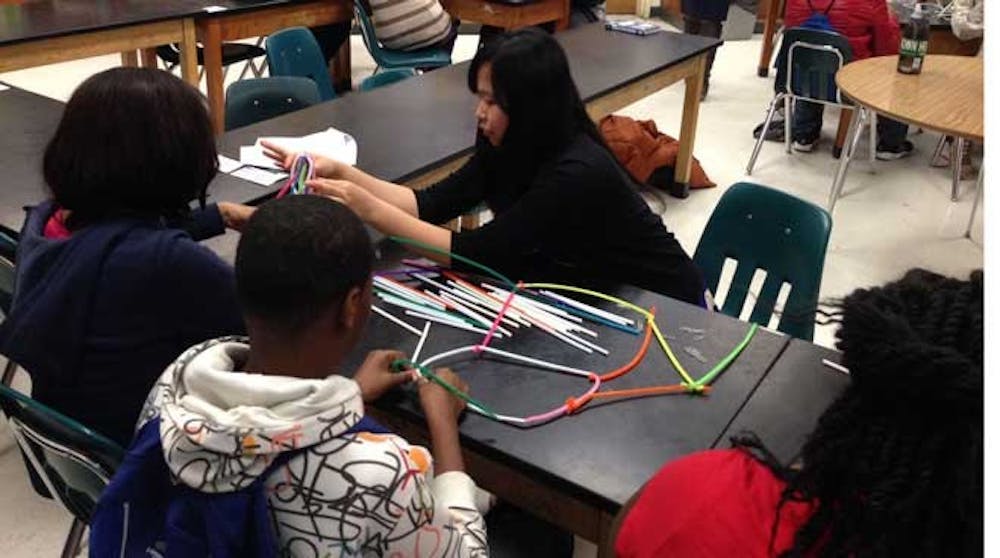Instead of traveling for spring break, nine University of Richmond students chose to stay in Richmond to participate in a justice program sponsored by Common Ground, the university's diversity initiative office.
This program allowed students to engage in conversations about food with knowledgeable Richmond faculty, practice healthy food preparation methods by cooking together at the kitchen in the Web and work with nonprofit organizations to serve lower-income communities throughout the city. Only nine students could participate because they had to fit in one van, and the small size contributed to the ease of intimate debrief discussions, said Lisa Miles, associate director of Common Ground.
Miles, who developed the new program this year, said there had recently been a movement toward local or organic foods, mostly supported by people who were able to "spend a little extra money." But those who are interested in food justice desire to serve two other groups of people.
Miles said the food justice movement focused on people who didn't have access to healthy, fresh food, as well as those who were food insecure on a daily basis.
"There are a lot of sections [of Richmond] -- for instance, the East End -- that don't have any full-service grocery stores ... as opposed to, say, Carytown, which has four grocery stores within a couple of blocks," she said.
Olivia Mobayed, a sophomore who participated in the program, said of the six organizations the group worked with during spring break, which included urban farms, community development groups and a charter school, her favorite place they served was FeedMore. FeedMore is a nonprofit whose staff and volunteers serve by distributing food donations and providing hunger relief for the region's "most vulnerable people," according to its website.
Mobayed said she saw connections between what she learned during spring break and what she hopes to achieve in her career. "I hope to go into urban planning, and this program was a great opportunity to see what kinds of organizations work together to fix problems that affect many within the city," she said.
Melissa Ooten, associate director of WILL, co-led the program with Miles. She compared the food justice movement to others she has taught and studied, such as the Civil Rights movement and the women's movement.
Ooten and Miles said they expected Common Ground to continue offering the food justice spring break alternative in coming years.
"I think all of us were inspired by the work Richmonders are doing to address food access issues on a daily basis," Ooten said, "and I was continually impressed with our motivated, inquisitive group of students"
Enjoy what you're reading?
Signup for our newsletter
Support independent student media
You can make a tax-deductible donation by clicking the button below, which takes you to our secure PayPal account. The page is set up to receive contributions in whatever amount you designate. We look forward to using the money we raise to further our mission of providing honest and accurate information to students, faculty, staff, alumni and others in the general public.
Donate Now



